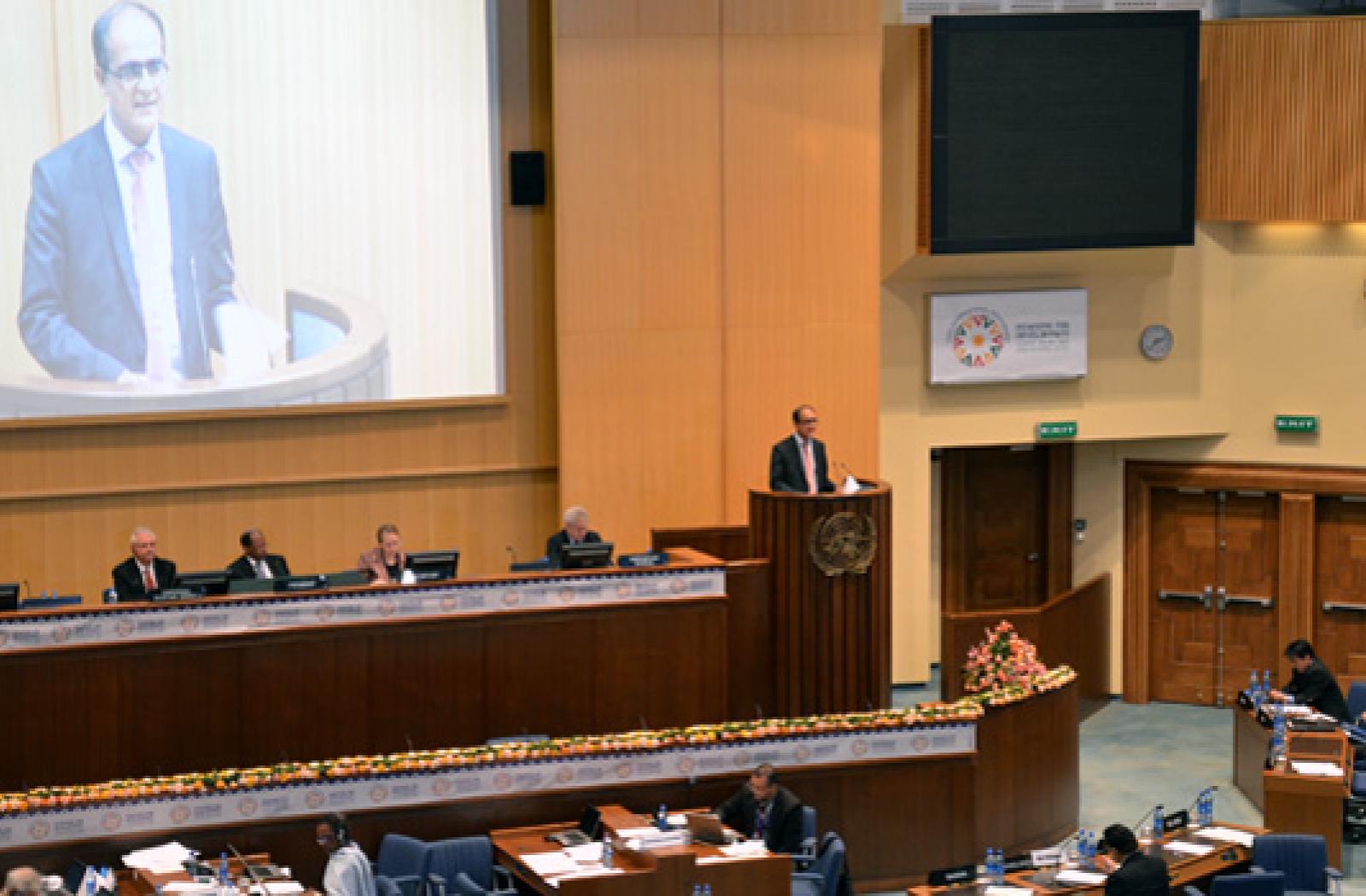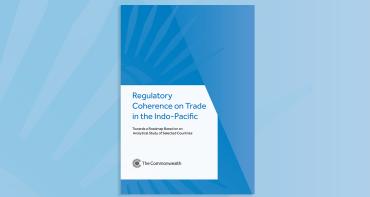The Commonwealth has urged the international community to “seize the opportunity” to end extreme poverty at a landmark conference on development finance.

The Commonwealth has urged the international community to “seize the opportunity” to end extreme poverty at a landmark conference on development finance in Ethiopia.
Commonwealth Deputy Secretary-General Deodat Maharaj addressed the plenary session of the International Conference on Financing for Development in Addis Ababa on 16 July 2015 with a call for a global framework that is “inclusive, transformative and universal”.
The Addis Ababa Action Agenda, which was formally adopted by 193 countries following the conclusion of the conference, puts forward more than 100 measures to fund development, including domestic revenue collection and official development assistance.
The agreement will help to define the funding sources for 17 Sustainable Development Goals – from ending hunger to achieving gender equality – which are set to be endorsed by world leaders at the United Nations’ Sustainable Development Summit in New York in September.
In his address, Mr Maharaj described the adoption of the Addis Ababa Action Agenda as “a seminal moment” as he asserted the need to support small and vulnerable states, deal with indebtedness and improve global economic governance.
“We have a duty to act collectively and undertake concrete actions to address key systemic bottlenecks in several areas, including trade, tax and global economic governance, where we must seek the development of a framework which is more inclusive and where everyone can participate effectively,” the Deputy Secretary-General told delegates.
The Commonwealth’s 53 member countries includes 41 developing nations, as well as 31 countries classed as small states, with populations of under one million. Many of these countries are highly fragile and face capacity constraints that affect their ability to manage external shocks including financial crises and climate change, Mr Maharaj warned in his address.
The Commonwealth Secretariat has supported a financing framework which enhances the effectiveness of existing resources and reduces the vulnerabilities associated with traditional forms of development finance, such as overseas aid.
Mr Maharaj continued: “Traditional sources of finance, while important, are currently insufficient to meet the scale of the development challenge. We must turn our attention at all levels to innovative finance for development and be bold if we are to succeed.”
During the Addis Ababa conference, the Commonwealth Secretariat brought together leading experts and policy-makers to look at crowdfunding as one innovative source of financing.
The Commonwealth Secretariat is also seeking to work with regional and international financial institutions to reduce the risks associated with diaspora money transfers, which provide a crucial source of income to citizens in many developing countries. A forum on this will be held at Marlborough House in London, United Kingdom, on 20-21 July 2015.
Mr Maharaj was leading a Commonwealth delegation to Addis Ababa which included the Commonwealth Foundation, Commonwealth Education Trust, Commonwealth Local Government Forum, and Commonwealth Association of Tax Administrators.
Notes to Editors:
Photos are available on request by emailing [email protected]
Social Media: @commonwealthsec #Commonwealth #FinancingforDevelopment #FFD3



